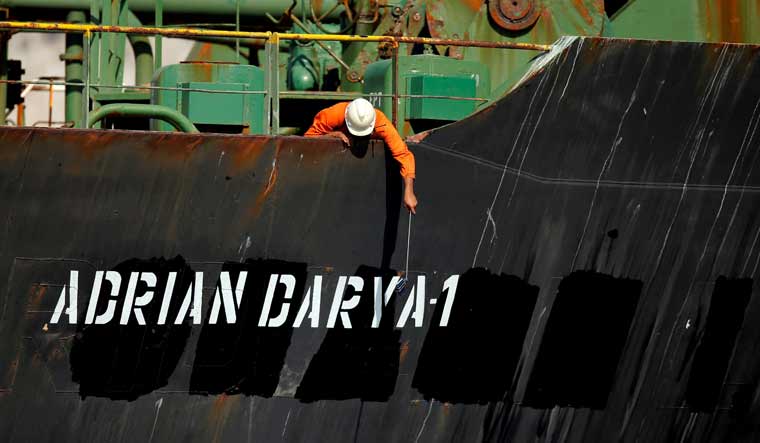Ships and individuals allegedly directed by Iran’s Islamic Revolutionary Guard Corps (IRGC) that supply Syria with oil worth hundreds of millions of dollars, labelled as 'oil for terror', have been blacklisted by the United States. as these are in direct breach of sanctions imposed on Iran.
State Department official Brian Hook said those doing business with blacklisted entities “are now exposed to US sanctions.” US issued a new international shipping advisory about IRGC’s use of “deceptive practices” to violate these sanctions.
also read
Iran, in a bid to put pressure on European nations, has been slowly reducing its compliance with the 2015 agreement. The tension between US and Iran has been escalating ever since US President Trump backed out of the JCPOA deal in 2018 and imposed more trade sanctions on Iran. Iran, unhappy with the move, in July, enriched its uranium reserves to weapons-grade levels. Iran had previously presented a deadline within which the US could lift the sanctions or Iran would start enriching its uranium reserves.
Amidst all the drama, the UK, last month captured the Adrian Darya 1 that was passing though the strait of Gibraltar, following allegations the ship was taking its load of 2.1 million barrels of oil to a refinery on the Syrian coast, but eventually released it on August 16.
Adrian Darya 1 was blacklisted on August 31 and is among the sea vessels that have been blacklisted by the US in the 'oil for terror' network. Among the ten blacklisted individuals include Rostam Qasemi, a former Iranian oil minister, and his son. The Quds Force and Hezbollah, the Iranian-backed Lebanese militia movement, profited financially from the sales of Iranian oil and petroleum products to Syria, according to US officials.
“This vast oil-for-terror shipping network demonstrates how economically reliant Tehran is on the IRGC-QF and Hezbollah as financial lifelines,” said Sigal Mandaker, the senior Treasury official who oversees sanctions.
The Quds and Hezbollah, both organisations that are on the US list of foreign terrorist groups, have been major backers of Damascus in the civil war that erupted in 2011 against decades of Assad family rule.
State Department official Brian Hook said, “Vessels tied to the shipping network have tried to pass Iranian oil off as Iraqi oil.”
Iranian officials in the meantime, have ramped up pressure ahead of a weekend nuclear deadline for European nations to come up with a solution for Iran to sell its oil abroad in the aftermath of escalated US sanctions.
"Iran's third step is of an extraordinarily significant nature," Rouhani said, without detailing what it would entail, but saying a "decree will be announced today or tomorrow."
Iranian President Hassan Rouhani warned that Tehran would further reduce compliance and flout mandates stated in the 2015 nuclear accord and accelerate nuclear activities if Europe fails to provide a solution and called it Iran's third, "most important step" away from the deal.


